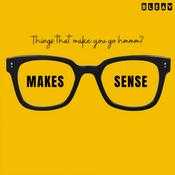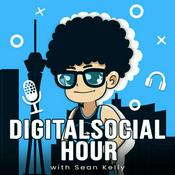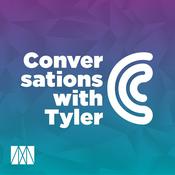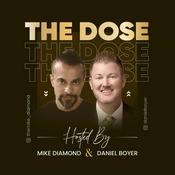320 episodes
Every AI Company's Safety Plan is 'Use AI to Make AI Safe'. Is That Crazy? | Ajeya Cotra
2/17/2026 | 2h 54 mins.Every major AI company has the same safety plan: when AI gets crazy powerful and really dangerous, they’ll use the AI itself to figure out how to make AI safe and beneficial. It sounds circular, almost satirical. But is it actually a bad plan?
Today’s guest, Ajeya Cotra, recently placed 3rd out of 413 participants forecasting AI developments and is among the most thoughtful and respected commentators on where the technology is going.
She thinks there’s a meaningful chance we’ll see as much change in the next 23 years as humanity faced in the last 10,000, thanks to the arrival of artificial general intelligence. Ajeya doesn’t reach this conclusion lightly: she’s had a ring-side seat to the growth of all the major AI companies for 10 years — first as a researcher and grantmaker for technical AI safety at Coefficient Giving (formerly known as Open Philanthropy), and now as a member of technical staff at METR.
So host Rob Wiblin asked her: is this plan to use AI to save us from AI a reasonable one?
Ajeya agrees that humanity has repeatedly used technologies that create new problems to help solve those problems. After all:
Cars enabled carjackings and drive-by shootings, but also faster police pursuits.
Microbiology enabled bioweapons, but also faster vaccine development.
The internet allowed lies to disseminate faster, but had exactly the same impact for fact checks.
But she also thinks this will be a much harder case. In her view, the window between AI automating AI research and the arrival of uncontrollably powerful superintelligence could be quite brief — perhaps a year or less. In that narrow window, we’d need to redirect enormous amounts of AI labour away from making AI smarter and towards alignment research, biodefence, cyberdefence, adapting our political structures, and improving our collective decision-making.
The plan might fail just because the idea is flawed at conception: it does sound a bit crazy to use an AI you don’t trust to make sure that same AI benefits humanity.
But if we find some clever technique to overcome that, we could still fail — because the companies simply don’t follow through on their promises. They say redirecting resources to alignment and security is their strategy for dealing with the risks generated by their research — but none have quantitative commitments about what fraction of AI labour they’ll redirect during crunch time. And the competitive pressures during a recursive self-improvement loop could be irresistible.
In today’s conversation, Ajeya and Rob discuss what assumptions this plan requires, the specific problems AI could help solve during crunch time, and why — even if we pull it off — we’ll be white-knuckling it the whole way through.
Links to learn more, video, and full transcript: https://80k.info/ac26
This episode was recorded on October 20, 2025.
Chapters:
Cold open (00:00:00)
Ajeya’s strong track record for identifying key AI issues (00:00:43)
The 1,000-fold disagreement about AI's effect on economic growth (00:02:30)
Could any evidence actually change people's minds? (00:22:48)
The most dangerous AI progress might remain secret (00:29:55)
White-knuckling the 12-month window after automated AI R&D (00:46:16)
AI help is most valuable right before things go crazy (01:10:36)
Foundations should go from paying researchers to paying for inference (01:23:08)
Will frontier AI even be for sale during the explosion? (01:30:21)
Pre-crunch prep: what we should do right now (01:42:10)
A grantmaking trial by fire at Coefficient Giving (01:45:12)
Sabbatical and reflections on effective altruism (02:05:32)
The mundane factors that drive career satisfaction (02:34:33)
EA as an incubator for avant-garde causes others won't touch (02:44:07)
Video and audio editing: Dominic Armstrong, Milo McGuire, Luke Monsour, and Simon Monsour
Music: CORBIT
Coordination, transcriptions, and web: Katy Moore- In early 2025, after OpenAI put out the first-ever reasoning models — o1 and o3 — short timelines to transformative artificial general intelligence swept the AI world. But then, in the second half of 2025, sentiment swung all the way back in the other direction, with people's forecasts for when AI might really shake up the world blowing out even further than they had been before reasoning models came along.
What the hell happened? Was it just swings in vibes and mood? Confusion? A series of fundamentally unexpected and unpredictable research results?
Host Rob Wiblin has been trying to make sense of it for himself, and here's the best explanation he's come up with so far.
Links to learn more, video, and full transcript: https://80k.info/tl
Chapters:
Making sense of the timelines madness in 2025 (00:00:00)
The great timelines contraction (00:00:46)
Why timelines went back out again (00:02:10)
Other longstanding reasons AGI could take a good while (00:11:13)
So what's the upshot of all of these updates? (00:14:47)
5 reasons the radical pessimists are still wrong (00:16:54)
Even long timelines are short now (00:23:54)
This episode was recorded on January 29, 2026.
Video and audio editing: Dominic Armstrong, Milo McGuire, Luke Monsour, and Simon Monsour
Music: CORBIT
Camera operator: Dominic Armstrong
Coordination, transcripts, and web: Katy Moore #179 Classic episode – Randy Nesse on why evolution left us so vulnerable to depression and anxiety
2/03/2026 | 2h 51 mins.Mental health problems like depression and anxiety affect enormous numbers of people and severely interfere with their lives. By contrast, we don’t see similar levels of physical ill health in young people. At any point in time, something like 20% of young people are working through anxiety or depression that’s seriously interfering with their lives — but nowhere near 20% of people in their 20s have severe heart disease or cancer or a similar failure in a key organ of the body other than the brain.
From an evolutionary perspective, that’s to be expected, right? If your heart or lungs or legs or skin stop working properly while you’re a teenager, you’re less likely to reproduce, and the genes that cause that malfunction get weeded out of the gene pool.
So why is it that these evolutionary selective pressures seemingly fixed our bodies so that they work pretty smoothly for young people most of the time, but it feels like evolution fell asleep on the job when it comes to the brain? Why did evolution never get around to patching the most basic problems, like social anxiety, panic attacks, debilitating pessimism, or inappropriate mood swings? For that matter, why did evolution go out of its way to give us the capacity for low mood or chronic anxiety or extreme mood swings at all?
Today’s guest, Randy Nesse — a leader in the field of evolutionary psychiatry — wrote the book Good Reasons for Bad Feelings, in which he sets out to try to resolve this paradox.
Rebroadcast: This episode originally aired in February 2024.
Links to learn more, video, and full transcript: https://80k.info/rn
In the interview, host Rob Wiblin and Randy discuss the key points of the book, as well as:
How the evolutionary psychiatry perspective can help people appreciate that their mental health problems are often the result of a useful and important system.
How evolutionary pressures and dynamics lead to a wide range of different personalities, behaviours, strategies, and tradeoffs.
The missing intellectual foundations of psychiatry, and how an evolutionary lens could revolutionise the field.
How working as both an academic and a practicing psychiatrist shaped Randy’s understanding of treating mental health problems.
The “smoke detector principle” of why we experience so many false alarms along with true threats.
The origins of morality and capacity for genuine love, and why Randy thinks it’s a mistake to try to explain these from a selfish gene perspective.
Evolutionary theories on why we age and die.
And much more.
Chapters:
Cold Open (00:00:00)
Rob's Intro (00:00:55)
The interview begins (00:03:01)
The history of evolutionary medicine (00:03:56)
The evolutionary origin of anxiety (00:12:37)
Design tradeoffs, diseases, and adaptations (00:43:19)
The tricker case of depression (00:48:57)
The purpose of low mood (00:54:08)
Big mood swings vs barely any mood swings (01:22:41)
Is mental health actually getting worse? (01:33:43)
A general explanation for bodies breaking (01:37:27)
Freudianism and the origins of morality and love (01:48:53)
Evolutionary medicine in general (02:02:42)
Objections to evolutionary psychology (02:16:29)
How do you test evolutionary hypotheses to rule out the bad explanations? (02:23:19)
Striving and meaning in careers (02:25:12)
Why do people age and die? (02:45:16)
Producer and editor: Keiran Harris
Audio Engineering Lead: Ben Cordell
Technical editing: Dominic Armstrong
Transcriptions: Katy Moore- Democracy might be a brief historical blip. That’s the unsettling thesis of a recent paper, which argues AI that can do all the work a human can do inevitably leads to the “gradual disempowerment” of humanity.
For most of history, ordinary people had almost no control over their governments. Liberal democracy emerged only recently, and probably not coincidentally around the Industrial Revolution.
Today's guest, David Duvenaud, used to lead the 'alignment evals' team at Anthropic, is a professor of computer science at the University of Toronto, and recently co-authored 'Gradual disempowerment.'
Links to learn more, video, and full transcript: https://80k.info/dd
He argues democracy wasn’t the result of moral enlightenment — it was competitive pressure. Nations that educated their citizens and gave them political power built better armies and more productive economies. But what happens when AI can do all the producing — and all the fighting?
“The reason that states have been treating us so well in the West, at least for the last 200 or 300 years, is because they’ve needed us,” David explains. “Life can only get so bad when you’re needed. That’s the key thing that’s going to change.”
In David’s telling, once AI can do everything humans can do but cheaper, citizens become a national liability rather than an asset. With no way to make an economic contribution, their only lever becomes activism — demanding a larger share of redistribution from AI production. Faced with millions of unemployed citizens turned full-time activists, democratic governments trying to retain some “legacy” human rights may find they’re at a disadvantage compared to governments that strategically restrict civil liberties.
But democracy is just one front. The paper argues humans will lose control through economic obsolescence, political marginalisation, and the effects on culture that’s increasingly shaped by machine-to-machine communication — even if every AI does exactly what it’s told.
This episode was recorded on August 21, 2025.
Chapters:
Cold open (00:00:00)
Who’s David Duvenaud? (00:00:50)
Alignment isn’t enough: we still lose control (00:01:30)
Smart AI advice can still lead to terrible outcomes (00:14:14)
How gradual disempowerment would occur (00:19:02)
Economic disempowerment: Humans become "meddlesome parasites" (00:22:05)
Humans become a "criminally decadent" waste of energy (00:29:29)
Is humans losing control actually bad, ethically? (00:40:36)
Political disempowerment: Governments stop needing people (00:57:26)
Can human culture survive in an AI-dominated world? (01:10:23)
Will the future be determined by competitive forces? (01:26:51)
Can we find a single good post-AGI equilibria for humans? (01:34:29)
Do we know anything useful to do about this? (01:44:43)
How important is this problem compared to other AGI issues? (01:56:03)
Improving global coordination may be our best bet (02:04:56)
The 'Gradual Disempowerment Index' (02:07:26)
The government will fight to write AI constitutions (02:10:33)
“The intelligence curse” and Workshop Labs (02:16:58)
Mapping out disempowerment in a world of aligned AGIs (02:22:48)
What do David’s CompSci colleagues think of all this? (02:29:19)
Video and audio editing: Dominic Armstrong, Milo McGuire, Luke Monsour, and Simon Monsour
Music: CORBIT
Camera operator: Jake Morris
Coordination, transcriptions, and web: Katy Moore #145 Classic episode – Christopher Brown on why slavery abolition wasn't inevitable
1/20/2026 | 2h 56 mins.In many ways, humanity seems to have become more humane and inclusive over time. While there’s still a lot of progress to be made, campaigns to give people of different genders, races, sexualities, ethnicities, beliefs, and abilities equal treatment and rights have had significant success.
It’s tempting to believe this was inevitable — that the arc of history “bends toward justice,” and that as humans get richer, we’ll make even more moral progress.
But today's guest Christopher Brown — a professor of history at Columbia University and specialist in the abolitionist movement and the British Empire during the 18th and 19th centuries — believes the story of how slavery became unacceptable suggests moral progress is far from inevitable.
Rebroadcast: This episode was originally aired in February 2023.
Links to learn more, video, and full transcript: https://80k.link/CLB
While most of us today feel that the abolition of slavery was sure to happen sooner or later as humans became richer and more educated, Christopher doesn't believe any of the arguments for that conclusion pass muster. If he's right, a counterfactual history where slavery remains widespread in 2023 isn't so far-fetched.
As Christopher lays out in his two key books, Moral Capital: Foundations of British Abolitionism and Arming Slaves: From Classical Times to the Modern Age, slavery has been ubiquitous throughout history. Slavery of some form was fundamental in Classical Greece, the Roman Empire, in much of the Islamic civilisation, in South Asia, and in parts of early modern East Asia, Korea, China.
It was justified on all sorts of grounds that sound mad to us today. But according to Christopher, while there’s evidence that slavery was questioned in many of these civilisations, and periodically attacked by slaves themselves, there was no enduring or successful moral advocacy against slavery until the British abolitionist movement of the 1700s.
That movement first conquered Britain and its empire, then eventually the whole world. But the fact that there's only a single time in history that a persistent effort to ban slavery got off the ground is a big clue that opposition to slavery was a contingent matter: if abolition had been inevitable, we’d expect to see multiple independent abolitionist movements thoroughly history, providing redundancy should any one of them fail.
Christopher argues that this rarity is primarily down to the enormous economic and cultural incentives to deny the moral repugnancy of slavery, and crush opposition to it with violence wherever necessary.
Mere awareness is insufficient to guarantee a movement will arise to fix a problem. Humanity continues to allow many severe injustices to persist, despite being aware of them. So why is it so hard to imagine we might have done the same with forced labour?
In this episode, Christopher describes the unique and peculiar set of political, social and religious circumstances that gave rise to the only successful and lasting anti-slavery movement in human history. These circumstances were sufficiently improbable that Christopher believes there are very nearby worlds where abolitionism might never have taken off.
Christopher and host Rob Wiblin also discuss:
Various instantiations of slavery throughout human history
Signs of antislavery sentiment before the 17th century
The role of the Quakers in early British abolitionist movement
The importance of individual “heroes” in the abolitionist movement
Arguments against the idea that the abolition of slavery was contingent
Whether there have ever been any major moral shifts that were inevitable
Chapters:
Rob's intro (00:00:00)
Cold open (00:01:45)
Who's Christopher Brown? (00:03:00)
Was abolitionism inevitable? (00:08:53)
The history of slavery (00:14:35)
Signs of antislavery sentiment before the 17th century (00:19:24)
Quakers (00:32:37)
Attitudes to slavery in other religions (00:44:37)
Quaker advocacy (00:56:28)
Inevitability and contingency (01:06:29)
Moral revolution (01:16:39)
The importance of specific individuals (01:29:23)
Later stages of the antislavery movement (01:41:33)
Economic theory of abolition (01:55:27)
Influence of knowledge work and education (02:12:15)
Moral foundations theory (02:20:43)
Figuring out how contingent events are (02:32:42)
Least bad argument for why abolition was inevitable (02:41:45)
Were any major moral shifts inevitable? (02:47:29)
Producer: Keiran Harris
Audio mastering: Milo McGuire
Transcriptions: Katy Moore
More Education podcasts
Trending Education podcasts
About 80,000 Hours Podcast
Unusually in-depth conversations about the world's most pressing problems and what you can do to solve them.
Subscribe by searching for '80000 Hours' wherever you get podcasts.
Hosted by Rob Wiblin and Luisa Rodriguez.
Podcast websiteListen to 80,000 Hours Podcast, Makes Sense - with Dr. JC Doornick and many other podcasts from around the world with the radio.net app

Get the free radio.net app
- Stations and podcasts to bookmark
- Stream via Wi-Fi or Bluetooth
- Supports Carplay & Android Auto
- Many other app features
Get the free radio.net app
- Stations and podcasts to bookmark
- Stream via Wi-Fi or Bluetooth
- Supports Carplay & Android Auto
- Many other app features


80,000 Hours Podcast
Scan code,
download the app,
start listening.
download the app,
start listening.








































